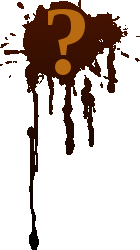Frequently Asked Questions

What is the Rorschach Inkblot Test?
Contrary to popular belief, the Rorschach Inkblot Test is NOT strictly a projective psychological or personality measure. In the strictest sense, the Rorschach Inkblot Test is a test or assessment of perception.
It is designed to evaluate how someone approaches their environment, In other words, it asks the question, "How does someone view and organize the world around them?"
Through analyzing what someone sees, where they see it, and what about the blot makes what they saw look like whatever they saw, the psychologist is able to make various hypotheses about how that person views and organizes the world.
Furthermore, the psychologist can compare the person's perceptions to a clinical or normative sample. From this analysis, the psychologist then makes inferences about the person's approach to the world (which is largely stable and described often as character or personality), insofar as, one's feelings, thoughts, stress tolerance, relationships, and self-perception shapes and influences how that person views and organizes their world. Thus, the major areas evaluated are:
- the person's emotional world,
- the person's cognitive world,
- the person's ability to deal with situational stress,
- the person's perception of others and relationships, and 5) the person's self-perception.
How is the Rorschach Test Scored?
The test is conducted by a professional psychologist on subjects ranging between ages 5 and adulthood. Adminstrators typically sit side-by-side to ensure they do not influence the participants answers.
CHESS is an open-source project developed for the Rorschach community to design and disseminate a software for the scoring and computing of the Rorschach Comprehensive System (J.E. Exner), and Supplementary Scales.
The Rorschach Performance Assessment System® (R-PAS®) holds regular workshops around the world.
Is the Rorschach Test Accurate & Valid?
While the test has had controversial issues associated with it, making it both the most cherished & most refviled of all psychological assessment tools. A meta-analysis published by the American Psychological Aossication in 2013 found the test was valid & quite accurate on many fronts.
Here is the abstract from The Validity of Individual Rorschach Variables: Systematic Reviews and Meta-Analyses of the Comprehensive System:
We systematically evaluated the peer-reviewed Rorschach validity literature for the 65 main variables inthe popular Comprehensive System (CS). Across 53 meta-analyses examining variables against exter-nally assessed criteria (e.g., observer ratings, psychiatric diagnosis), the mean validity was r = .27 (k = 770) as compared to r = .08 (k = 386) across 42 meta-analyses examining variables against introspectively assessed criteria (e.g., self-report). Using Hemphill’s (2003) data-driven guidelines for interpreting the magnitude of assessment effect sizes with only externally assessed criteria, we found 13 variables had excellent support (r ≥ .33 , p < .001; FSN > 50), 17 had good support (r ≥ .21, p < .05, FSN ≥ 10),10 had modest support (p < .05 and either r ≥ .21, FSN < 10, or r= .15–.20, FSN ≥ 10), 13 had little (p < .05 and either r < .15 or FSN < 10) or no support (p > .05), and 12 had no construct-relevant validity studies. The variables with the strongest support were largely those that assess cognitive and perceptual processes (e.g., Perceptual-Thinking Index, Synthesized Response); those with the leastsupport tended to be very rare (e.g.,Color Projection) or some of the more recently developed scales (e.g., Egocentricity Index, Isolation Index). Our findings are less positive, more nuanced, and more inclusive than those reported in the CS test manual. We discuss study limitations and the implications forresearch and clinical practice, including the importance of using different methods in order to improveour understanding of people.
Is the Test Still Used Today?
Yes. Multiple bodies are organized around the test, including:
- The International Society of the Rorschach & Projective Methods
- The British Rorchach Society
- Société du Rorschach
Have I Seen This Website Before?
Every day hundreds of people visit our website. You may have been visited this site long ago only to get a sense of deja vu visiting again mainy years later.
As this site has been online since 1996, it is the original website dedicated to the Rorschach Test. We have been referenced by many other websites across the web over the past couple decades. Here is a small sample of some of the sites which have mentioned us - ranging from Wikipeda, news publications, universities, blogs, and some of the original web portals.
![]()
![]()
![]()
![]()
![]()
![]()
![]()
![]()
![]()
![]()
![]()
![]()
If you like what you see, please share this website with others. :)
If you dislike what you see, please share this website with others. :)
"All lies and jests
Still a man hears what he wants to hear
And disregards the rest"
Rorschach.org is licensed under a Creative Commons Attribution-NonCommercial-ShareAlike 3.0 Unported License
